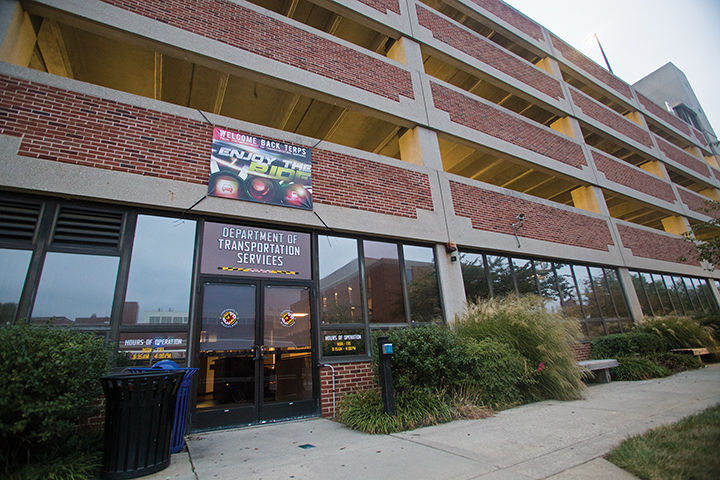
The Department of Transportation Services offices on Regents Drive. The DOTS IT offices have had success going green with the Green Office Program.
The offices in DOTS’ information technology department now use 100 percent recycled paper. They’ve reduced their commuter carbon footprint by 23.7 percent, and 40 percent of IT staff biked or walked to work as of Sept. 3.
These changes started about five months ago, after the Department of Transportation Services’ IT department joined the Office of Sustainability’s Green Office Program in April.
There are 140 offices participating in the voluntary Green Office Program, which certifies offices based on how well they promote environmental practices. Some have achieved bronze-, silver- or gold-level certifications, while other offices participate without certification, sustainability associate Tacy Lambiase said.
DOTS’ IT department received a bronze certification level in July and the silver level in August. To be certified at each level, officers are expected to complete at least three-quarters of the actions on a checklist, Lambiase said. Actions include recycling, composting, turning off equipment and purchasing eco-friendly products.
Each level requires more commitment, both in terms of finance and individual action, Lambiase said.
“It’s just important personally to recycle and try to be more green,” said DOTS IT Director Deshaun Steele, who decided to get the department involved in the program. “I saw it as a challenge with the different levels: bronze, silver and gold.”
Jean Bosquet, the IT department’s Green Office representative, said the competitive aspect of the program motivated the group.
“Every DOTS department is involved,” Bosquet said. “Marketing, shuttle … there’s a little competition going on around that, so everyone is trying to beat us.”
IT staff members have organized interdepartmental bike-to-lunch events in College Park and Hyattsville.
The department also collected money to purchase plants for the office, and replaced some of its old power strips with smart power strips, which help keep electronic devices from wasting energy.
“The smart power strips, those were hard to get used to,” said Robert Spengler, an IT support associate.
Steele said one of the biggest changes since joining the Green Office Program was switching to 100 percent recycled paper, which is more costly than regular paper.
The department’s staff members are working on their gold certification and have plans to implement cameras with solar panels and a new computer operating system that uses less power, Steele said.
“We can only meet our sustainability goals as a university if everyone is actively working together, so individual action is important and individual offices can make a great contribution to the sustainability of the whole campus,” Lambiase said. “We’re really trying to build a sustainability community for faculty and staff on campus.”
CORRECTION: Due to a reporting error, a previous version of this story stated the Green Office Program was an initiative of the university sustainability committee. It is an Office of Sustainability program. The article has been updated.



